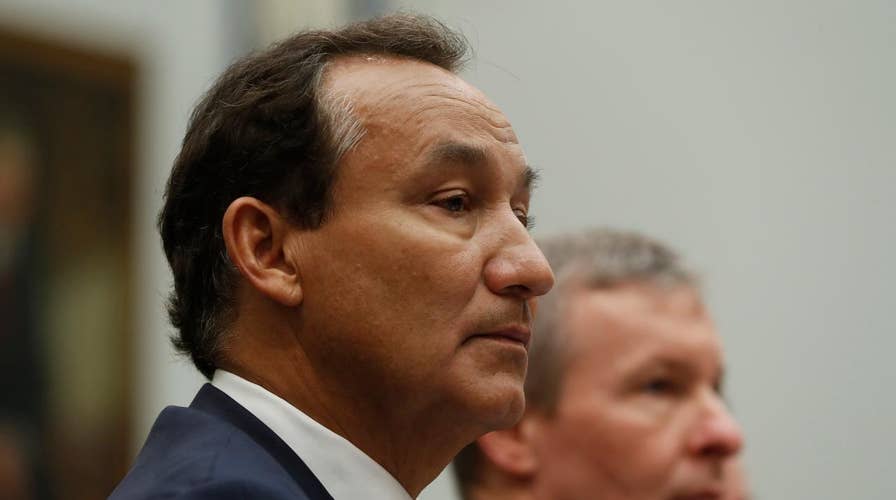Apologetic United CEO tells Congress: 'We will do better'
Oscar Munoz gives opening statement to House Transportation Committee on dragging incident
House lawmakers warned top airline executives Tuesday that Congress will take action against the industry if they don't improve customer service soon, at a hearing where the embattled United Airlines CEO apologized for the company's recent service debacles.
“Something is broken,” Rep. Bill Shuster, R-Pa., chairman of the House Transportation Committee, said at the start of the hearing. “Seize this opportunity, because if you don’t we’re going to act and you’re not going to like it.”
United CEO Oscar Munoz testified before the panel alongside four other airline representatives about customer service policies following a rash of incidents caught on camera that included one bloodied passenger being dragged off a United flight.
Munoz, who was there with the airline’s president, Scott Kirby, promised to work “incredibly hard” to regain the trust of customers following the April 9 incident at Chicago’s O’Hare International Airport when passenger Dr. David Dao was dragged off the plane.
Munoz called the episode “a mistake of epic proportions” and a “turning point for United.”
“In that moment, for our customers and our company, we failed, and so as CEO, at the end of the day, that is on me,” Munoz testified. He added, “Ultimately, our actions will speak louder than words.”
Since the incident, United has taken a series of steps to reduce overbooking and plans to raise the limit on payments to customers who voluntarily give up seats on oversold flights to $10,000. Munoz also promised to improve employee training.
Also at the hearing were senior executives of Southwest Airlines, American Airlines and Alaska Air Group as well as an aviation consultant for the Consumers Union.
Unlike United, which has vowed to reduce -- but not eliminate -- overbooking, Southwest said it would eliminate it all together. Currently, JetBlue is one of the only U.S. carriers that has a long-standing policy to not oversell flights, and tell Fox News they will remain committed to that policy.
Lawmakers also called out airline executives on “contracts of carriage” which customers must sign when purchasing a plane ticket. The contracts detail the airlines’ boarding, baggage and customer service policies and under what conditions a passenger can be removed from a flight.
Most of the contracts are several pages of single-spaced tiny font.
For example, Alaska Air’s contract is 67 pages and is more than 37,000 words long. United’s contract is 46 pages and contains more than 37,000 words.
“We need transparency and simple language in the contract of carriage,” Rep. Peter DeFazio, the committee’s highest-ranking Democrat, said.
Alaska agreed to boil down theirs to a single page. Southwest pledged to work on simplifying theirs.






















